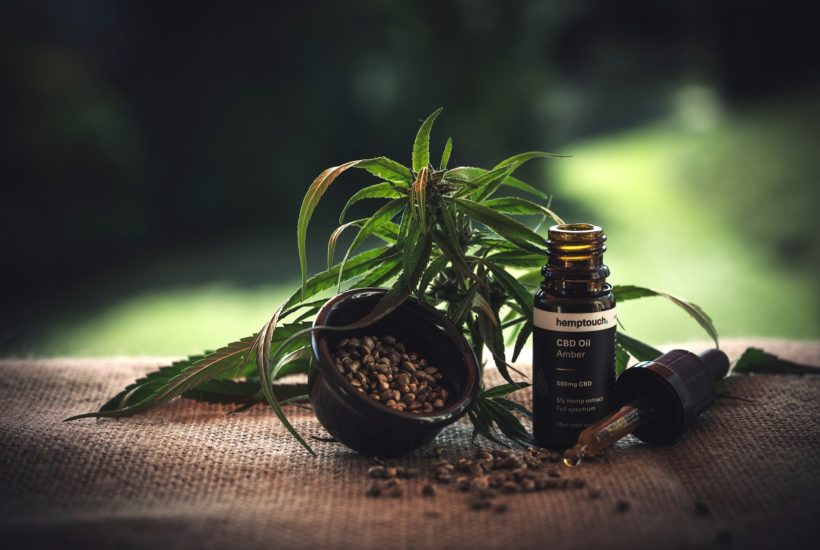Cannabis
Agreement on the prices of medical cannabis in Germany
The costs for the health insurance companies in Germany, due to the drug price regulation, experienced a 100% increase. After several failed negotiations, the German Pharmacists’ Association and the GKV-Spitzenverband reached an agreement on how to reduce the costs. In 2018, insurance companies spent about $55 million (€50 million) on cannabis preparations and unprocessed cannabis flowers.

Cannabis as a medicine is becoming more and more widespread in Germany. Between January 2019 and October of the same year alone, sales of medical cannabis products grew to over 50%, which shows how much more of the natural remedy was needed within this short period of time.
You can find more information about the medical cannabis industry and other important news in the cannabis sector with the Hemp.im app. This app collects the latest marijuana news from trusted sources to a single screen, so you can stay on top of the market.
Health insurance companies to come to an agreement with the Pharmacists’ Association
However, the costs for the health insurance companies due to the drug price regulation experienced a 100% increase, when cannabis flowers were processed and further processing could be charged with a surcharge of 90%. The German Pharmacists’ Association and the GKV-Spitzenverband should have reached an agreement on how to reduce the costs by the end of February 2020 following a demand by the legislator. After announcing failed negotiations in mid-March without any presentable results and involving an arbitration board, an agreement has now been reached on the prices of medical cannabis.
The health insurance companies spent about $55 million (€50 million) on cannabis preparations and unprocessed cannabis flowers in 2018. This figure is very much a drain on the health insurance funds’ budgets. In addition, since 2017 there have been disagreements between pharmacies and insurers that are difficult to resolve. As a consequence, the legislator tried to reach a binding agreement between the two contracting parties in 2019 by means of the Law for Greater Safety in the Supply of Medicines (GSAV).
The declared aim here was to minimize expenditure by $27 million (€25 million) on the part of the health insurance companies, which only pay the costs if they accept a patient’s application for cannabis medicine after the examination.
New regulations concerning the accruing costs for cannabis
As the demand for fewer money payments would have been painfully obvious to pharmacists, until recently the parties did not agree on a changed practice, so an arbitration board had to be informed. Now the hard-to-achieve conclusion has been reached after all and the Pharmacists’ Association and the GKV-Spitzenverband have reached an agreement. From now on and retroactively as of March 1st, new regulations concerning the accruing costs for cannabis medicine apply.
It will now be dispensed with charging the delivery of cannabis flowers and preparations of medical cannabis via the drug price regulation, so that the high surcharges will no longer apply.
Instead, a so-called auxiliary tax is now being invoked for sales, the amount of which can be measured according to the quantities sold. Low percentage surcharges or fixed surcharges are set in this model, which is intended to save the health insurance companies a lot of money in comparison. However, this is only for health insurance companies.
Patients who receive reimbursement for their medicine will continue to pay their usual prescription co-payments of up to $11 (€10) – privately insured and self-payers, on the other hand, will not notice anything at all of the slowly forced change. If a patient without health insurance approval needs his cannabis-based medicine – or a privately insured person – the newly initiated auxiliary tax will not be effective. For this clientele, the original drug price regulation with up to 100% surcharge remains in its old form.
__
(Featured image by CBD-Infos-com via Pixabay)
DISCLAIMER: This article was written by a third party contributor and does not reflect the opinion of Born2Invest, its management, staff or its associates. Please review our disclaimer for more information.
This article may include forward-looking statements. These forward-looking statements generally are identified by the words “believe,” “project,” “estimate,” “become,” “plan,” “will,” and similar expressions. These forward-looking statements involve known and unknown risks as well as uncertainties, including those discussed in the following cautionary statements and elsewhere in this article and on this site. Although the Company may believe that its expectations are based on reasonable assumptions, the actual results that the Company may achieve may differ materially from any forward-looking statements, which reflect the opinions of the management of the Company only as of the date hereof. Additionally, please make sure to read these important disclosures.
First published in HanfJournal, a third-party contributor translated and adapted the article from the original. In case of discrepancy, the original will prevail.
Although we made reasonable efforts to provide accurate translations, some parts may be incorrect. Born2Invest assumes no responsibility for errors, omissions or ambiguities in the translations provided on this website. Any person or entity relying on translated content does so at their own risk. Born2Invest is not responsible for losses caused by such reliance on the accuracy or reliability of translated information. If you wish to report an error or inaccuracy in the translation, we encourage you to contact us.

-

 Business1 week ago
Business1 week agoDow Jones Near Record Highs Amid Bullish Momentum and Bearish Long-Term Fears
-

 Crowdfunding6 days ago
Crowdfunding6 days agoThe Youth Program at Enzian Shooting Club Is Expanding Thanks to Crowdfunding
-

 Impact Investing2 weeks ago
Impact Investing2 weeks agoEU Backs 90% Emissions Cut by 2040 and Delays ETS2 Rollout
-

 Crypto2 days ago
Crypto2 days agoTariff Turmoil Sends Bitcoin and Ethereum Lower as Crypto Markets Face Mounting Pressure

























